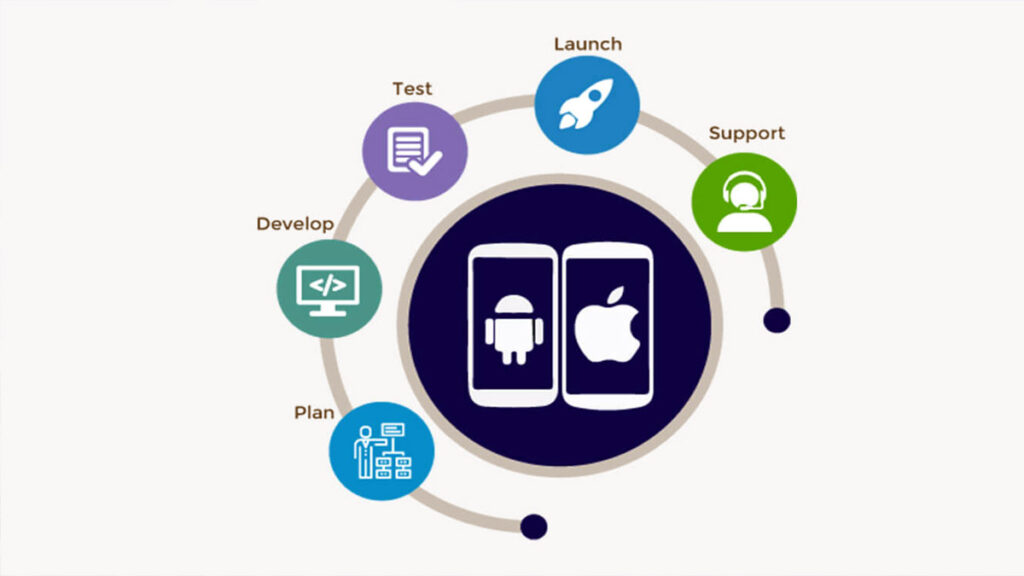
The mobile application industry has witnessed exponential growth over the past decade, with billions of users worldwide relying on mobile apps for various daily tasks. Among the major platforms, Android holds a significant share of the market due to its widespread usage and accessibility. As businesses and individuals increasingly seek to leverage the power of mobile apps, the demand for Android mobile application development services has surged. These services provide comprehensive solutions for creating, deploying, and maintaining high-quality Android applications that meet diverse user needs.
Understanding Android Mobile Application Development
Android mobile application development Services involves creating software applications that run on the Android operating system. This process encompasses several critical components and phases, each contributing to the final product.
Key Components of Android Mobile Application Development Services
- Programming Languages: Java and Kotlin are the primary languages used for Android app development. While Java has been the traditional choice, Kotlin has gained popularity due to its modern features and enhanced performance.
- Development Environment: Android Studio is the official integrated development environment (IDE) for Android development. It provides a comprehensive suite of tools for coding, debugging, and testing applications.
- SDK: The Android Software Development Kit (SDK) includes libraries, tools, and documentation necessary for building Android apps.
Development Process of Android Mobile Application Development Services
Planning: Defining the app’s purpose, target audience, and key features.
Design: Creating wireframes, mockups, and user interface designs.
Development: Writing the code and integrating various components.
Testing: Ensuring the app is bug-free and performs well under different conditions.
Deployment: Publishing the app on the Google Play Store.
Maintenance: Regularly updating the app to fix issues and add new features.
Benefits of Android Mobile Application Development Services
Android’s dominance in the mobile app market brings several advantages for businesses and developers.
Market Share and Reach: Android holds the largest share of the global smartphone market, providing a vast potential user base for any application. This extensive reach allows businesses to target a diverse audience across different regions and demographics.
Customization and Flexibility: Android is known for its high degree of customization. Developers have the freedom to modify and customize the operating system and applications to suit specific needs, providing a tailored user experience.
Integrate with Google Services: integrate apps with a variety of Google services such as Google Maps, Gmail & Google Drive. This integration enhances the functionality and convenience of the applications.
Open-source Nature: Being an open-source platform, Android allows developers to access and modify the source code. This encourages innovation and reduces development costs, as developers can leverage existing solutions and contribute to the community.
Large Developer Community: Android has a vast and active developer community. This community provides support, shares knowledge, and contributes to a robust ecosystem of tools and libraries, facilitating the development process.
Essential Features of a Successful Android Application
To stand out in the competitive app market, an Android application must incorporate several essential features.
User-friendly Interface and Experience: The app should have an intuitive and visually appealing user interface (UI) that provides a seamless user experience (UX). Navigation should be straightforward, and the design should align with the app’s purpose.
High Performance and Speed: Performance is a critical factor in user satisfaction. The app should load quickly, respond promptly to user interactions, and function smoothly without crashes or lag.
Security Features: With increasing concerns about data privacy, robust security features are essential. The app should protect user data through encryption, secure authentication methods, and regular security updates.
Offline Functionality: Providing offline functionality enhances the app’s usability, especially in areas with limited internet connectivity. Users should be able to access essential features even without an internet connection.
Regular Updates and Maintenance: To keep users engaged and satisfied, the app should receive regular updates. These updates can include new features, performance improvements, and bug fixes, ensuring the app remains relevant and efficient.
Steps in Android Mobile Application Development Service

Developing a successful Android application involves several detailed steps, each contributing to the final product’s quality and performance.
1. Planning and Research
- Understanding User Requirements: Gather detailed information about the target audience, their needs, and preferences. Define the app’s core features and functionality.
- Market Research and Competitor Analysis: Analyze similar apps in the market to identify strengths and weaknesses. This helps in creating a unique value proposition for your app.
2. Design and Prototyping
- Wireframes and Mockups: Create wireframes to outline the app’s structure and layout. Develop detailed mockups to visualize the user interface.
- UI/UX Design: Focus on designing an intuitive and visually appealing interface. Ensure the user experience is smooth and engaging.
3. Development
- Coding in Java/Kotlin: Write the app’s code using Java or Kotlin. Implement the app’s features and functionality as per the design specifications.
- Integration of Third-party APIs: Integrate necessary third-party services and APIs to enhance the app’s functionality, such as payment gateways, social media integration, and analytics tools.
- Backend Development and Database Integration: Develop the backend infrastructure and integrate databases to manage and store app data efficiently.
4. Testing
- Unit Testing, Integration Testing, and System Testing: Conduct various levels of testing to identify and fix bugs. Make sure that app functions correctly under different conditions.
- User Acceptance Testing (UAT): Perform testing with real users to gather feedback and make necessary improvements before the final release.
5. Deployment
- Publishing on Google Play Store: Prepare the app for release by creating a developer account, setting up the app listing, and submitting the app for review.
- Marketing and App Store Optimization (ASO): Promote the app through various channels and optimize the app store listing to improve visibility and downloads.
6. Maintenance and Updates
- Regular Updates for New Features: Continuously add new features and improvements based on user feedback and market trends.
- Bug Fixes and Performance Improvements: Monitor the app’s performance and address any issues promptly to ensure a smooth user experience.
Challenges in Android Mobile Application Development
No doubt it has many advantages, Android app development also comes with its own set of issues.
Fragmentation of Android Devices and OS Versions: The diversity of Android devices and operating system versions can pose compatibility issues. Developers need to ensure the app works seamlessly across different devices and OS versions.
Security Issues and Data Privacy Concerns: Android’s open nature can make it more vulnerable to security threats. Developers must implement robust security measures to protect user data and maintain privacy.
Keeping Up with Rapid Technological Advancements: The tech industry evolves rapidly, and developers must stay updated with the latest tools, frameworks, and best practices to deliver cutting-edge applications.
Ensuring Compatibility Across Different Screen Sizes and Resolutions: Android devices come in various screen sizes and resolutions. Developers must design responsive and adaptable interfaces to provide a consistent experience across all devices.
Selecting the Right Android Mobile Application Development Service

Choosing the right development service provider is crucial for the success of your Android application.
Criteria for Choosing a Development Service Provider
- Experience and Portfolio: Evaluate the provider’s experience and examine their portfolio to assess their expertise and capabilities.
- Client Reviews and Testimonials: Look for reviews and testimonials from previous clients to gauge the provider’s reliability and quality of service.
- Technical Expertise and Team Strength: Ensure the provider has a skilled team with expertise in the latest technologies and development practices.
- Post-development Support: Verify if the provider offers ongoing support and maintenance services to address any issues and ensure the app’s smooth operation.
Importance of Communication and Project Management Tools: Effective communication and project management are vital for successful collaboration. Ensure the provider uses reliable tools to manage the project, track progress, and facilitate transparent communication.
Case Studies or Examples of Successful Projects: Review case studies or examples of successful projects completed by the provider. This helps in understanding their approach, problem-solving skills, and ability to deliver quality solutions.
Future Trends in Android Mobile Application Development
The future of Android mobile application development is shaped by several emerging trends and technologies.
Growth of AI and Machine Learning in Mobile Apps: Artificial intelligence and machine learning are increasingly being integrated into mobile apps to provide personalized experiences, enhance functionality, and improve user engagement.
Increasing Use of AR/VR Technologies: Augmented reality (AR) and virtual reality (VR) are transforming mobile apps by offering immersive and interactive experiences. These technologies are gaining traction in gaming, education, and retail industries.
Rise of IoT Integration: The Internet of Things (IoT) is enabling mobile apps to connect and interact with various smart devices, enhancing convenience and automation in daily tasks.
Progressive Web Apps (PWAs) and Instant Apps: PWAs and instant apps offer a seamless user experience by combining the best features of web and mobile applications.
Enhanced Focus on App Security and User Privacy: With growing concerns about data privacy, developers are placing greater emphasis on app security. Implementing advanced security measures and complying with privacy regulations is becoming a standard practice.
Final Wording
Android mobile application development services play a crucial role in creating innovative and high-quality apps that meet the diverse needs of users. By understanding the development process, leveraging the benefits of the Android platform, and staying updated with the latest trends, businesses can create successful applications that drive engagement and growth. Choosing the right development partner ensures that your app is built with the expertise, support, and dedication needed to succeed in the competitive mobile app market.
